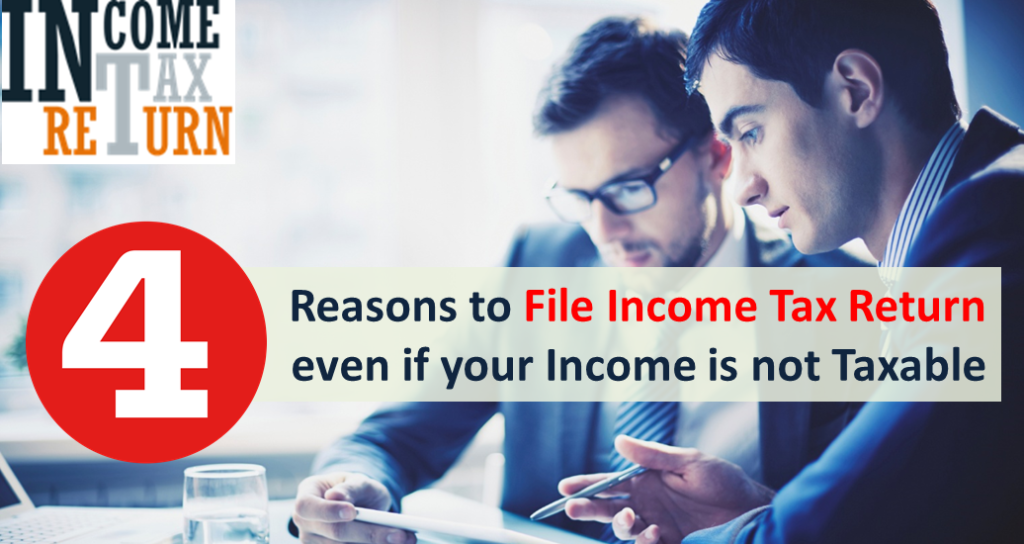July 31, 2019 is the last date to file income tax returns (ITR) for last financial year FY 2018-19 (AY 2019-20) without penalty and many people are still confused if they should even file their ITR.
Who needs to file ITR Mandatorily?
If your total gross income in FY 2018-19 was more than the taxable limit, you need to file your income tax returns. The limit was as follows:
- For people less than 60 Years of age – Rs 2.5 Lakhs
- For people between 60 to 80 years of age – Rs 3 Lakhs
- For people above 80 years of age – Rs 5 Lakhs
This income means income before availing any tax deductions from 80C to 80U.
You also need to file your ITR if you are resident have any asset or financial interest in an entity located outside of India.
Starting FY 2016-17 (AY 2017-18) one also needs to file income tax return if exempt long term capital gains from – sale of equity shares in a company OR sale of unit of equity oriented mutual funds, OR sale of unit of business trust is more than Rs 2.5 Lakhs.

Why you should file ITR?
Even if you are not in the above category that needs to mandatorily file their return, you should file your returns.
1. Claiming excess Tax Refunds:
There is no other way to claim excess tax refunds than filing ITR. Today TDS deduction has become mandatory across a lot of payments. The employer deducts TDS from salary, bank from FD interest rates, companies from payments to consultants, etc. Due to this you might have paid extra tax. The only way to get it back is file your ITR.
2. Carry forward losses:
Income tax laws allow you to carry forward and adjust some losses like stock market transactions (short term capital gains) against future income. For this you need to file your ITR showing these losses.
[box type=”info” size=”large” style=”rounded” border=”full”]
Here are some posts which can help you with e-filing of ITR 2019:
1. 9 Most Important Changes in ITR Forms for AY 2019-20
2. Calculate your Tax liability for FY 2018-19 (AY 2019-20)
3. Download 44 page slideshow showing all tax exemptions
4. Which ITR form to fill for Tax Returns for AY 2019-20?
5. How to Claim Tax Exemptions while filing ITR?
6. Use Challan 280 to Pay Self Assessment Tax Online
7. Form 26AS – Verify Before Filing Tax Return
8. 5 Ways to e-Verify your Income Tax Returns
9. What if You DO NOT file your Returns by due Date?
10. Can I file my Last Year Tax Return?
11. Why and How to Revise Your Tax Return?
12. What does Intimation U/S 143(1) of Income Tax Act mean?
13. What happens after you file your ITR?
[/box]
3. Loan processing:
If you are hunting for loans from financial institutions, they insist on 2 to 3 years of ITR. ITR is the most authentic proof of income of person and it helps banks understand your financials over the years.
4. Visa Processing:
If you are planning to apply for work or immigration visa, you must have your 2 to 3 years ITR ready. This is especially applicable for US, UK, Canada and other European countries.
The good thing is over the years ITR filing has become easier and more and more information on how to fill forms are available online. Even if you hire a tax preparer it won’t cost much especially in low income cases.
All in all the effort involved in filing tax returns far out weights the advantages and hence go for it!

ITR receipt is important because it is more detailed than Form 16.
Hello sir,
I have received a message from IT department on my mobile that my ITR for AY-2016-17 has been processed at CPC.And a order u/s 143(1) will be sent by e-mail to me but it is not sent to me till now. I received the message yesterday evening. I am worried for the same. Please reply
Thank you. Unlike last year, this year’s ITR1, requires one to detail exempt income under different heads- sec 10(38), sec 10(34), agri income and Others. So, is it required to mention any relevant section or, just mention UN Pension – x and FCNT Interest – y, under “Others” .
You can keep it in others
Good article, very helpful.
My income is not taxable but, I worked abroad and receive UN pension, plus interest from FCNR deposit. How can I enter the two while filing return.
Both FCNR interest and UN Pension are tax free which you can enter as “exempt income” in ITR